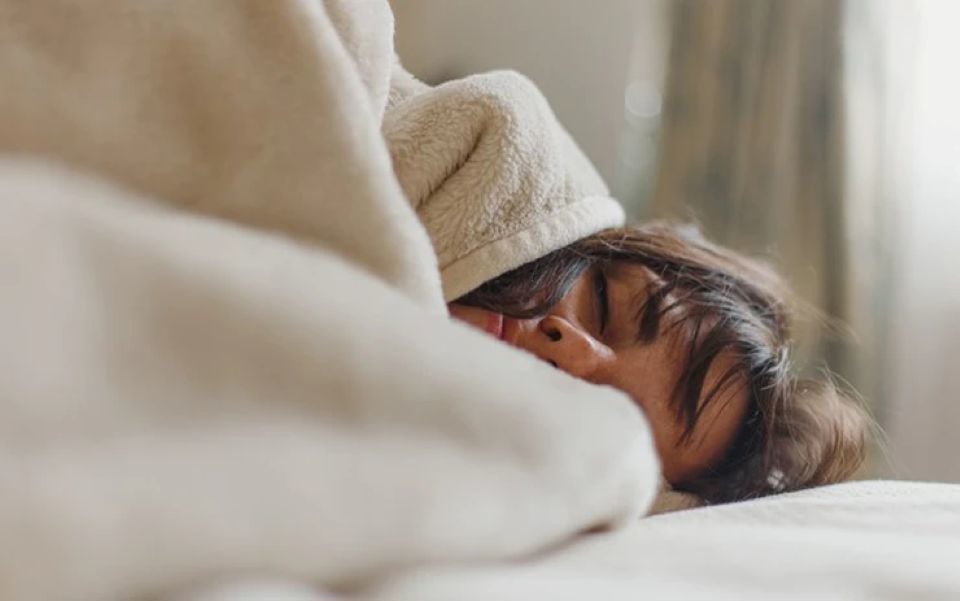Ideal sleep time for night sleep
According to scientific research, the time you wake up and go to bed can significantly affect the quality of your sleep. The ideal time to go to bed will vary from person to person, but for most people, the best quality of sleep is achieved when going to bed between 10 and 11 p.m. This is because at this time the concentration of the stress hormone cortisol and body temperature decreases significantly, and the brain also produces the "sleep hormone" melatonin.
According to experts, adults usually need to ensure they get 7 to 9 hours of sleep each night, however, each age and each case often have different sleep times.

According to the American Academy of Pediatrics and the US Centers for Disease Control and Prevention (CDC), scientific sleep time for each specific age is as follows:
- Newborns from 0 to 3 months old: Need to sleep 14 to 17 hours a day.
- Children from 4 months to 2 years old: Need to sleep 11 to 16 hours a day.
- Children from 3 to 5 years old: Need to sleep from 10 to 13 hours a day.
- Teenagers from 14 to 17 years old: Need 8 to 10 hours of sleep every day.
- Adults from 18 to 64 years old: Should sleep 7 to 9 hours a day.
- Elderly people (over 65 years old): Should sleep 7 to 8 hours a day.
Each person can also determine the best time to go to bed based on the time they need to wake up the next morning. For example, if you need to wake up at 7am the next morning, the estimated time to go to bed the night before is as follows:
- Children from 1 to 3 years old need to go to bed at 7 pm.
- Children from 3 to 5 years old need to go to bed at 8 pm.
- Teenagers (14 to 17 years old) need to go to bed between 10 and 11 pm.
- Adults (from 18 years old to under 65 years old) need to go to bed at 11pm.
However, sleep needs and sleep cycles vary significantly from person to person. To know what you should do to get good sleep and what time is best to sleep, you should consult a neurologist. The doctor will conduct a clinical examination to assess your overall health status and provide appropriate advice to help improve sleep quality and overall health.
Tips for going to bed on time
If you already know what time you should go to bed and want to maintain this sleep schedule but are having trouble falling asleep or are not used to going to bed at that time, here are some tips to help you fall asleep easier:
- Before going to bed, keep your stomach empty or do not eat too much, especially avoid greasy and spicy foods to avoid digestive disorders or indigestion causing difficulty sleeping.
- Do not use any stimulants in the evening.
- Before going to bed, choose your favorite form of relaxation such as: listening to music, reading, meditating,...
- Create a cool, fragrant and clean sleeping space.
- Do not use electronic devices 30 minutes before going to bed.
Source: https://kinhtedothi.vn/giac-ngu-dem-tot-nhat-nen-bat-dau-tu-may-gio.html



![[Photo] "Beauties" participate in the parade rehearsal at Bien Hoa airport](https://vstatic.vietnam.vn/vietnam/resource/IMAGE/2025/4/11/155502af3384431e918de0e2e585d13a)
![[Photo] Looking back at the impressive moments of the Vietnamese rescue team in Myanmar](https://vstatic.vietnam.vn/vietnam/resource/IMAGE/2025/4/11/5623ca902a934e19b604c718265249d0)


















![[Photo] Summary of parade practice in preparation for the April 30th celebration](https://vstatic.vietnam.vn/vietnam/resource/IMAGE/2025/4/11/78cfee0f2cc045b387ff1a4362b5950f)





























































Comment (0)